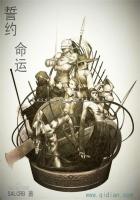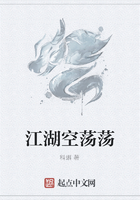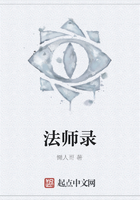"No. But for some time past you have been subject to these fits of sadness. You were much pleasanter in the earlier days of our acquaintance."
"Yesterday, on the contrary, I was more cheery and happy than I generally am. I had seen how kind, how indulgent, you were to my sister. The colonel and I were coming home in a boat. Do you know what one of the boatmen said to me in his infernal /patois/? 'You've killed a deal of game, Ors' Anton', but you'll find Orlanduccio Barricini a better shot than you!' "
"Well, what was there so very dreadful in that remark? Are you so very much set upon being considered a skilful sportsman?"
"But don't you see the ruffian was telling me I shouldn't have courage to kill Orlanduccio!"
"Do you know, M. della Rebbia, you frighten me! The air of this island of yours seems not only to give people fevers, but to drive them mad.
Luckily we shall be leaving it soon!"
"Not without coming to Pietranera--you have promised my sister that."
"And if we were to fail in that promise, we should bring down some terrible vengeance on our heads, no doubt!"
"Do you remember that story your father was telling us, the other day, about the Indians who threatened the company's agents that, if they would not grant their prayer, they would starve themselves to death?"
"That means that you would starve yourself to death! I doubt it very much! You would go hungry for one day and then Mademoiselle Colomba would bring you such a tempting /bruccio/[*] that you would quite relinquish your plan."
[*] A sort of baked cream cheese, a national dish in Corsica.
"Your jests are cruel, Miss Nevil. You might spare me. Listen, I am alone here; I have no one but you to prevent me from going mad, as you call it. You have been my guardian angel, and now----!"
"Now," said Miss Lydia gravely, "to steady this reason of yours, which is so easily shaken, you have the honour of a soldier and a man, and," she added, turning away to pluck a flower, "if that will be any help to you, you have the memory of your guardian angel, too!"
"Ah, Miss Nevil, if I could only think you really take some interest!"
"Listen, M. della Rebbia," said Miss Nevil, with some emotion. "As you are a child, I will treat you as I would treat a child. When I was a little girl my mother gave me a beautiful necklace, which I had longed for greatly; but she said to me, 'Every time you put on this necklace, remember you do not know French yet.' The necklace lost some of its value in my eyes, it was a source of constant self-reproach. But I wore it, and in the end I knew French. Do you see this ring? It is an Egyptian scarabaeus, found, if you please, in a pyramid. That strange figure, which you may perhaps take for a bottle, stands for '/human life/.' There are certain people in my country to whom this hieroglyphic should appear exceedingly appropriate. This, which comes after it, is a shield upon an arm, holding a lance; that means '/struggle/, /battle/.' Thus the two characters, together, form this motto, which strikes me as a fine one, '/Life is a battle/.' Pray do not fancy I can translate hieroglyphics at sight! It was a man learned in such matters who explained these to me. Here, I will give you my scarabaeus. Whenever you feel some wicked Corsican thought stir in you, look at my talisman, and tell yourself you must win the battle our evil passions wage against us. Why, really, I don't preach at all badly!"
"I shall think of you, Miss Nevil, and I shall say to myself----"
"Say to yourself you have a friend who would be in despair at the idea of your being hanged--and besides it would be too distressing for your ancestors the corporals!"
With these words she dropped Orso's arm, laughing and running to her father.
"Papa," she said, "do leave those poor birds alone, and come and make up poetry with us, in Napoleon's grotto!"















